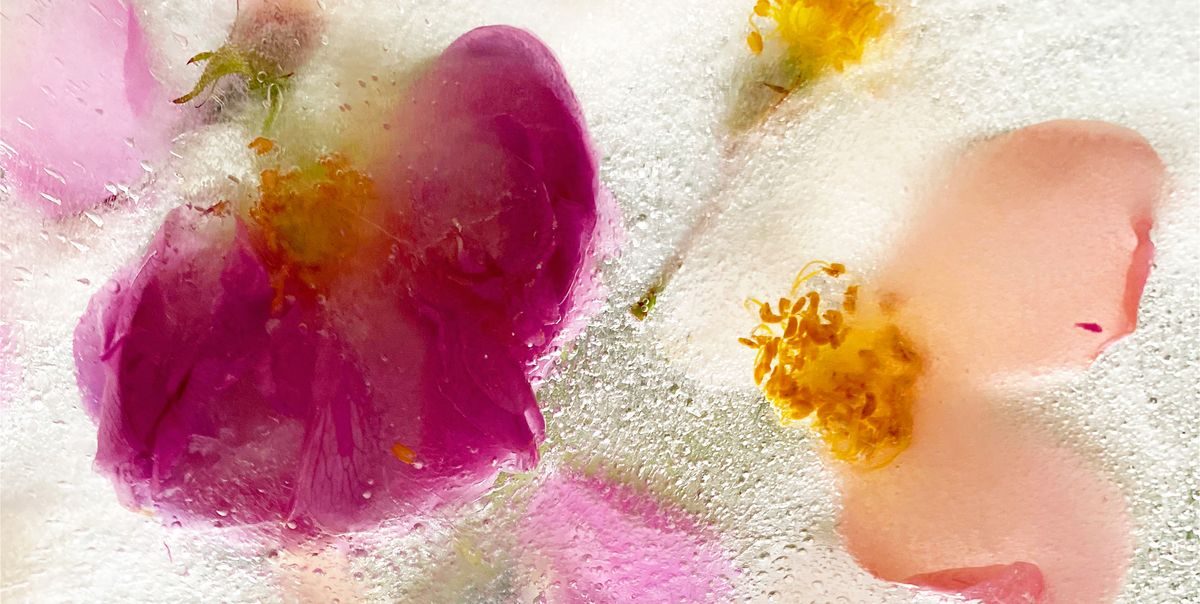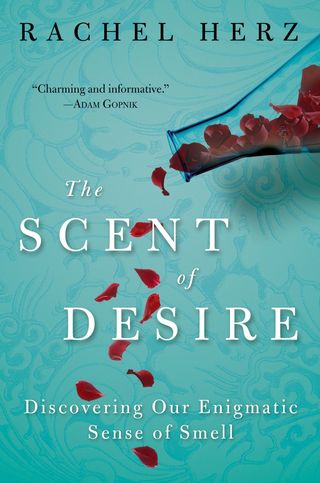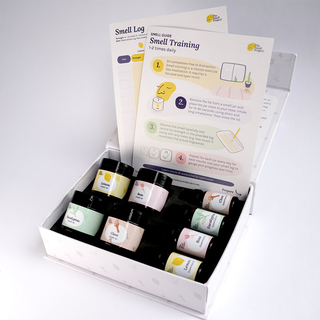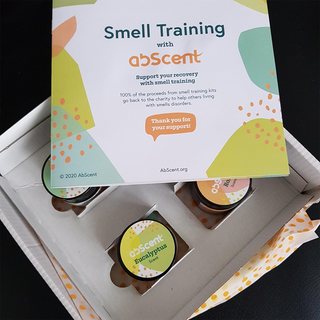When Laurence Chirat first heard that COVID-19 could cause a loss of the sense of smell, she was worried. For Chirat, the vice president of fragrance design innovation for the Geneva-based fragrance and flavor company Firmenich, scent is her livelihood. But when she got the virus in January, she learned that losing her sense of smell (aka anosmia) meant so much more.
A few days after getting sick, Chirat, who is trained to evaluate aroma compounds and potencies, woke up and couldn’t smell a thing. “It was just gone,” she says. She took a shower but didn’t feel clean. Cooking made her nervous: How would she know if the food were burning? “I changed my bedsheets, and I thought they were a bit gray,” she says. Without the freshly laundered aroma, they actually looked dirty. Chirat says it was like a constant low-grade anxiety—much worse than the general uneasiness we’ve all grown used to.
Research from a survey of 18 European hospitals shows that nearly 86 percent of patients with a mild form of COVID-19 experience olfactory dysfunction. But even Chirat, who works with perfume and knows all about the link between scent and well-being, was surprised by the impact of the loss. “I couldn’t have imagined,” she says, struggling to explain. “Hugging my daughter, I didn’t smell anything. It was sad—emotionally, it’s quite negative.”
Olfactory dysfunction has been associated with decreased quality of life, and patients with anosmia and loss of taste are more likely to suffer from symptoms of depression than other COVID survivors. Losing your sense of smell also has a unique impact on memory. “If you lose your sight, you could still have an image in your mind.
But with smell, we don’t have exact representations that we can go back to,” explains Rachel Herz, PhD, a neuroscientist who studies the psychology of smell and the author of The Scent of Desire. Even if the sense returns, aromas may not retain their emotional connections.
Ruth Sutcliffe, a former fragrance developer who helped create scents for Katy Perry, Beyoncé, Nautica, and others, is well aware of the power of smell. Since 2017, her company, the Scent Guru Group, has been running multisensory workshops to help people with dementia and disabilities use smell to recall memories and develop communication skills. Last spring, when she read about an early COVID-19 survivor with anosmia, she reached out to offer help. It turns out the exercises she’s been using in her workshops can help coronavirus patients re-cover what they’ve lost.
Herz says it’s not entirely known why the training works, “but it has to do with a combination of cognitive and neurophysiological factors.”
If you smell something you know is supposed to be lemon, think- ing about it as you sniff engages the brain processes involved in scent recognition, and that, combined with repeated exposure to the aroma, may help reactivate olfactory receptors.
Last summer, Herz wrote a training guide for Sutcliffe’s Essential Awakenings Smell & Memory Set, a kit that can help people recover from COVID-induced olfactory dysfunction. The Smell Project, a newly launched company, introduced a similar kit in September.
There’s also a growing support community online. One of the largest is AbScent, a nonprofit advocacy site founded by Chrissi Kelly, who had anosmia years ago and again in April 2020.
AbScent’s website and Facebook groups have a combined membership of about 40,000. As devastating as the pandemic has been, Kelly says, “It solved our awareness problem. There was never going to be money for research until there was more awareness, and this has been the magic bullet.” She says sales of AbScent’s smell-training kit have also increased, providing more funds to support the charity’s efforts.
Even though some research shows that 95 percent of COVID-19 patients with olfactory dysfunction regain their sense of smell within six months of getting sick, that’s a long time to wait—especially for someone like Chirat. She says she’s heard about the kits, but she already has the training supplies she needs at the Firmenich office. “At every opportunity, I try to smell strong essential oils,” she says. Three weeks after she got sick, she had her first hopeful sign. “I smelled the coffee,” she says. “Every day brings little victories.” The most promising yet? “I hugged my daughter and smelled her perfume—Daisy Marc Jacobs.”
This article originally appeared in the May 2021 issue of ELLE Magazine.
This content is created and maintained by a third party, and imported onto this page to help users provide their email addresses. You may be able to find more information about this and similar content at piano.io



